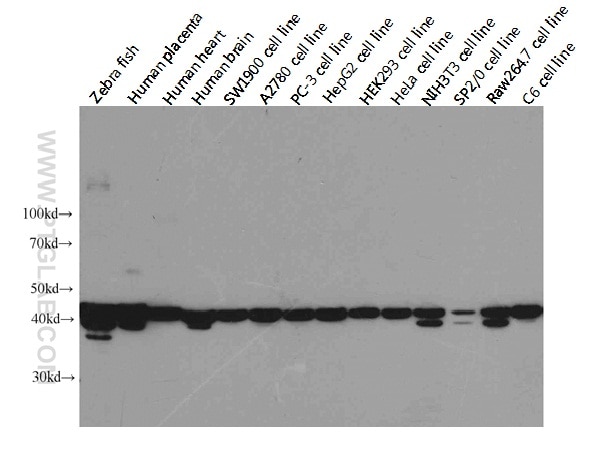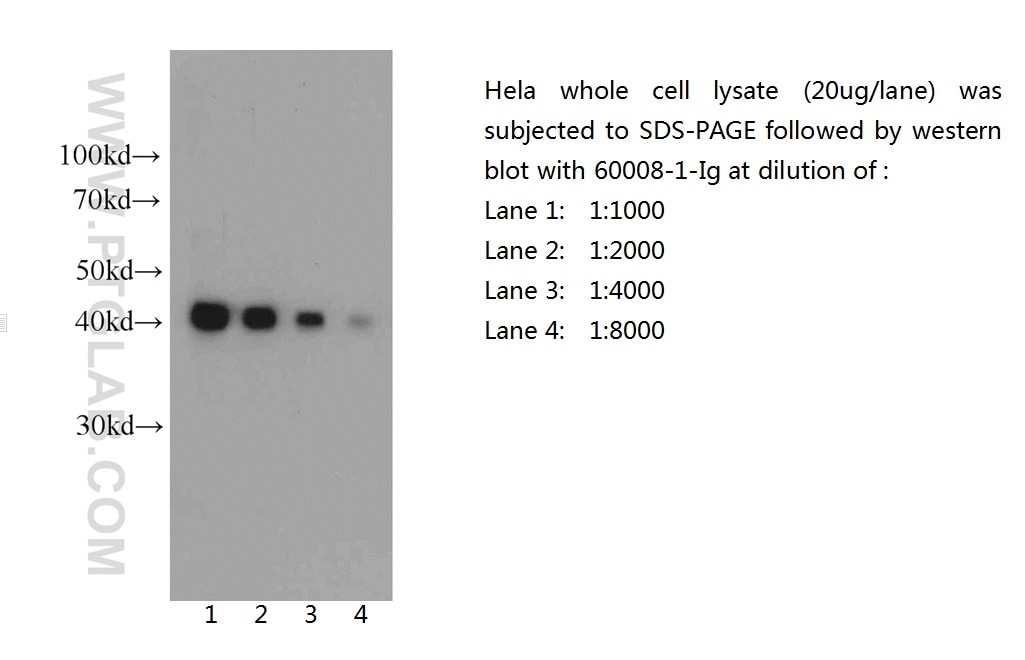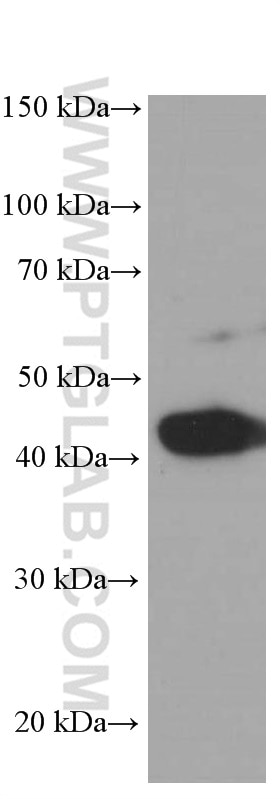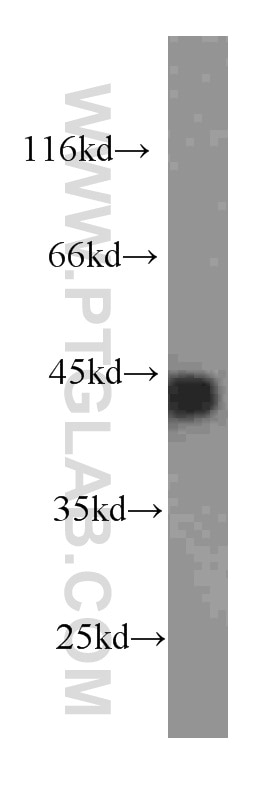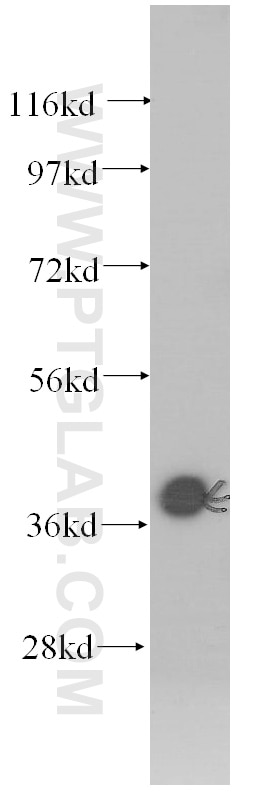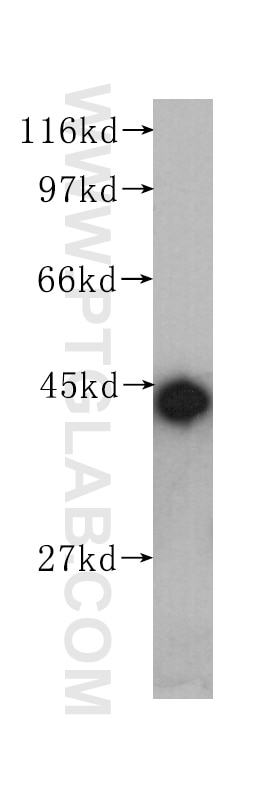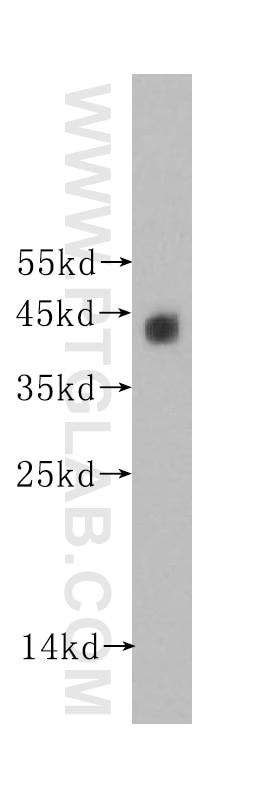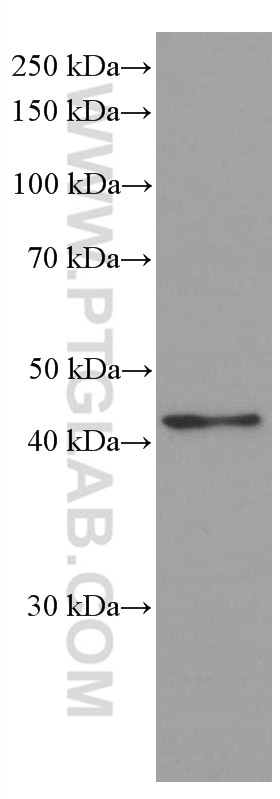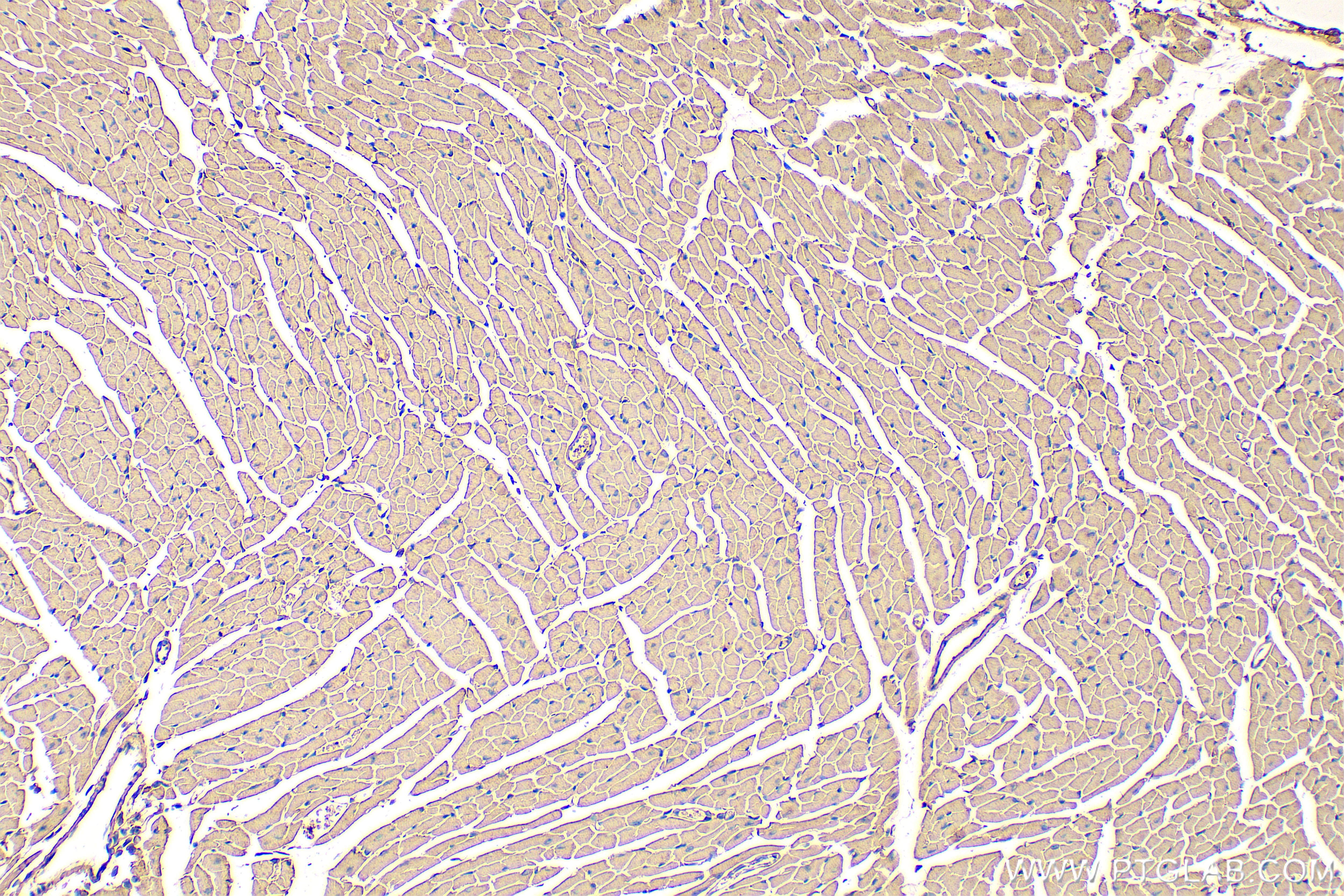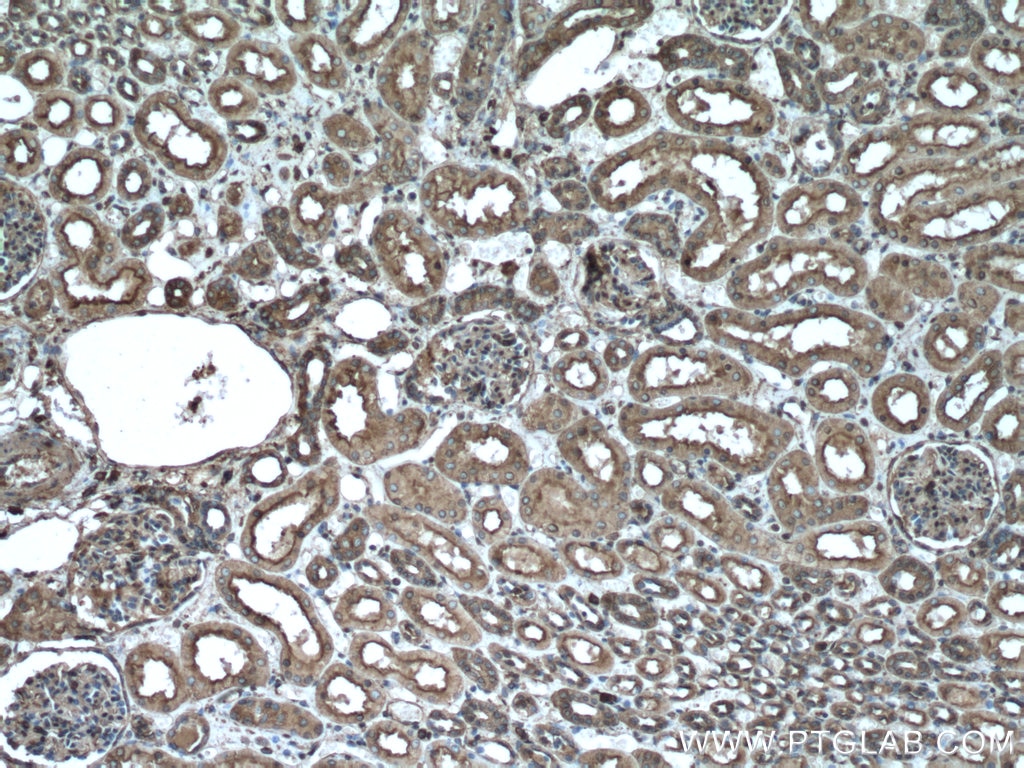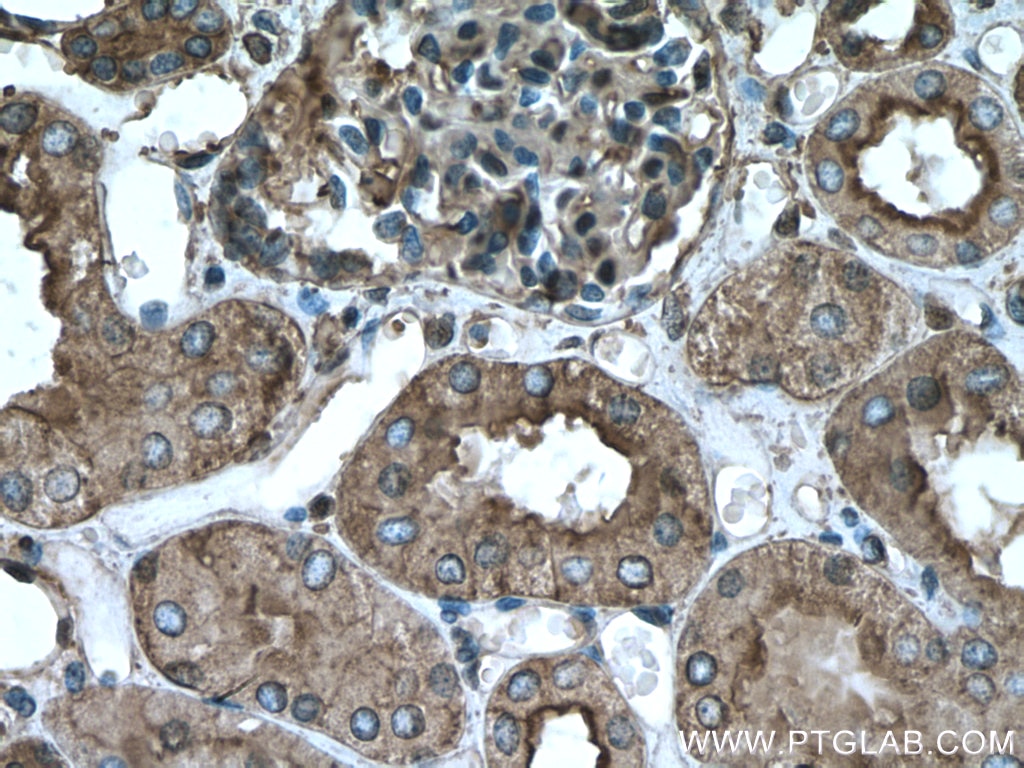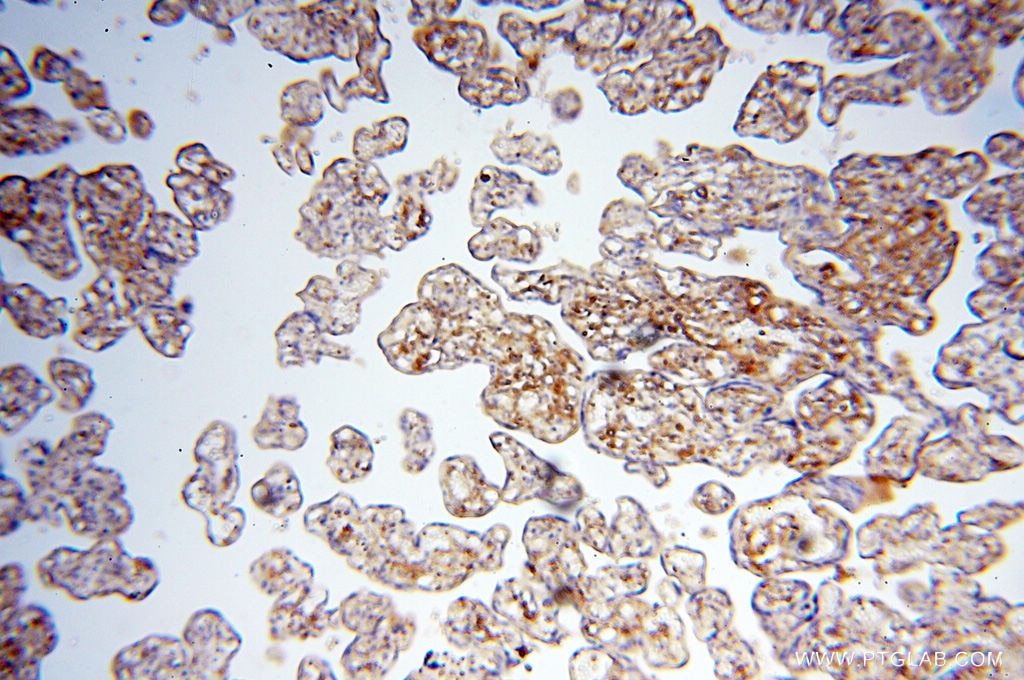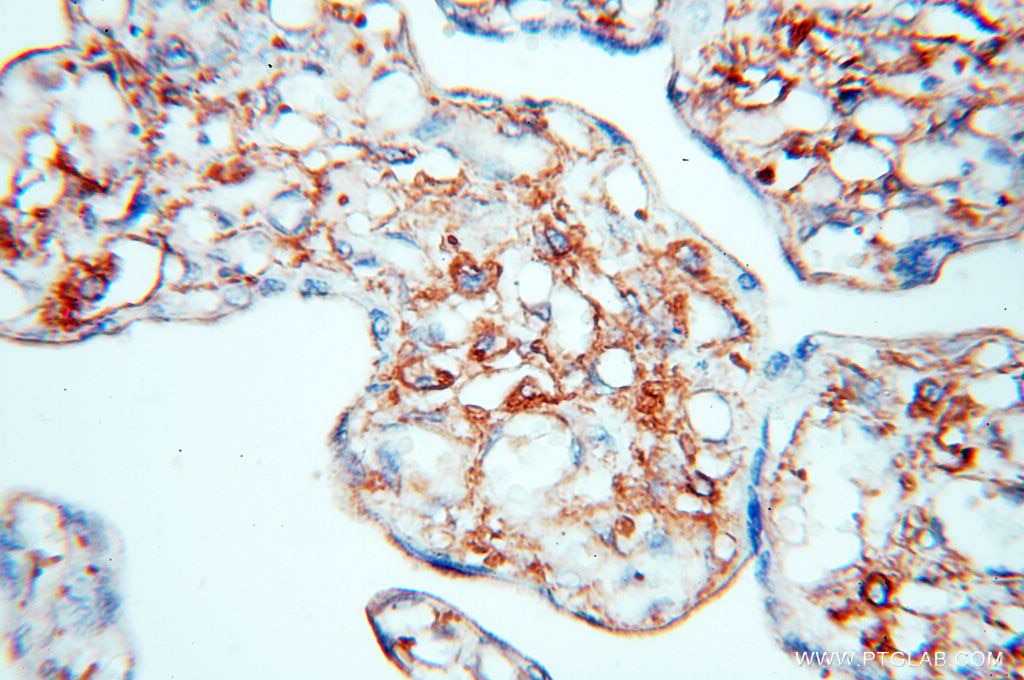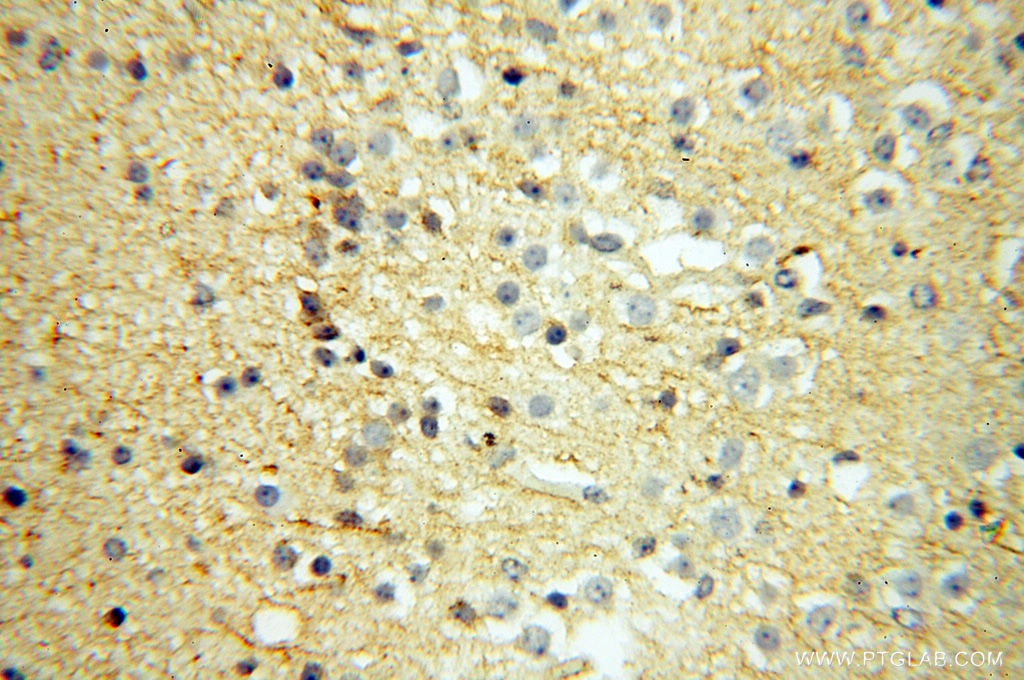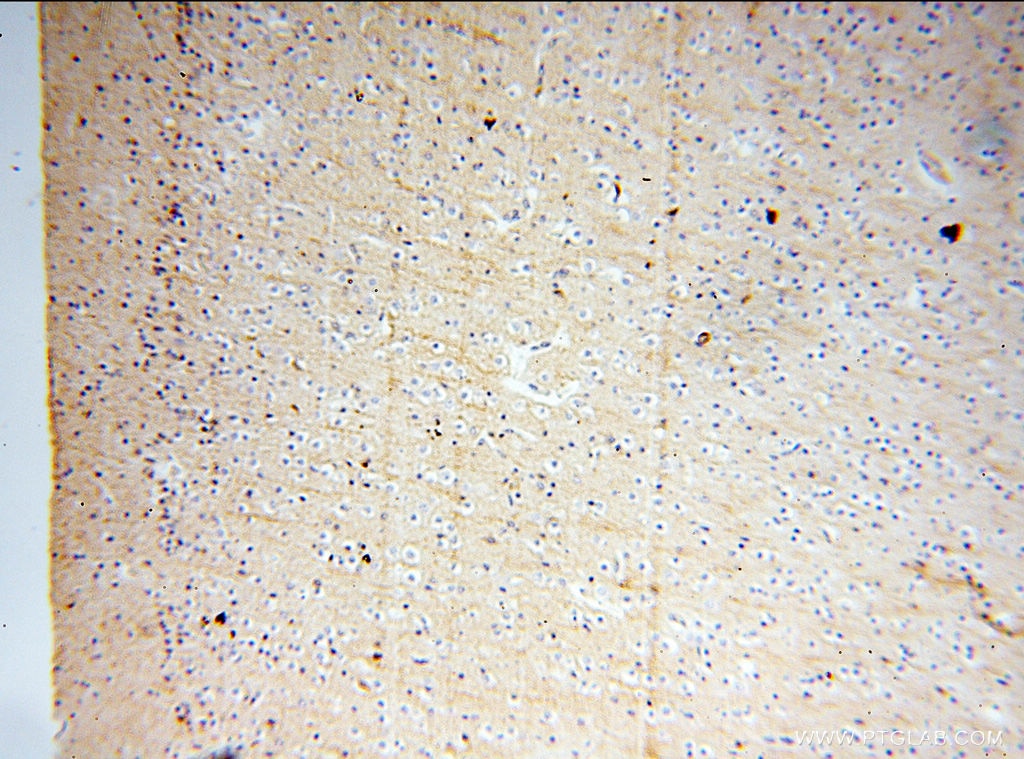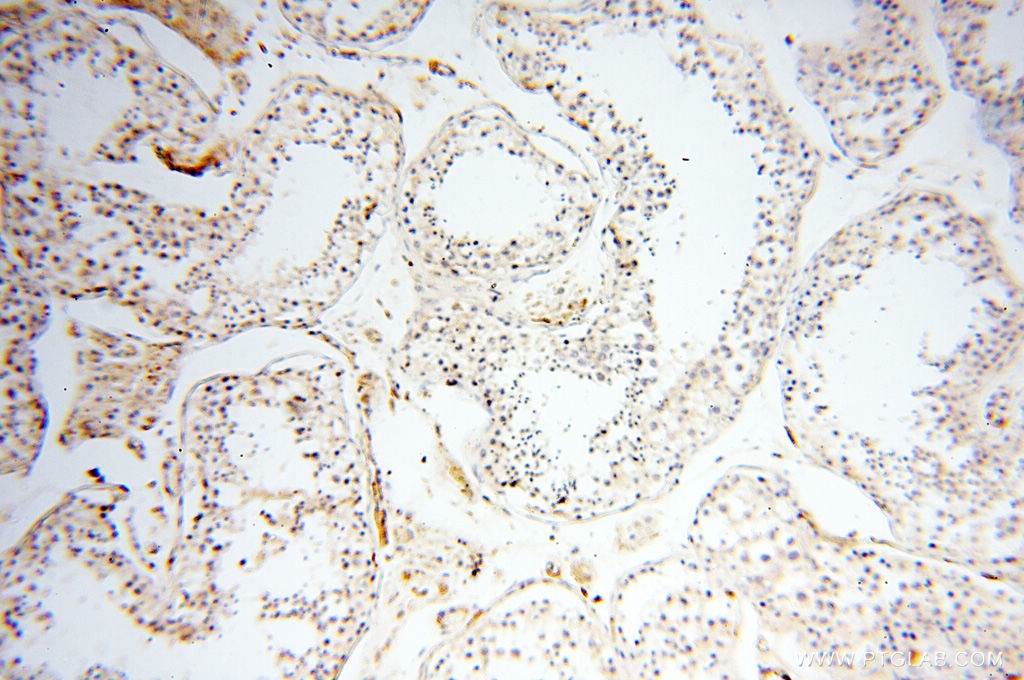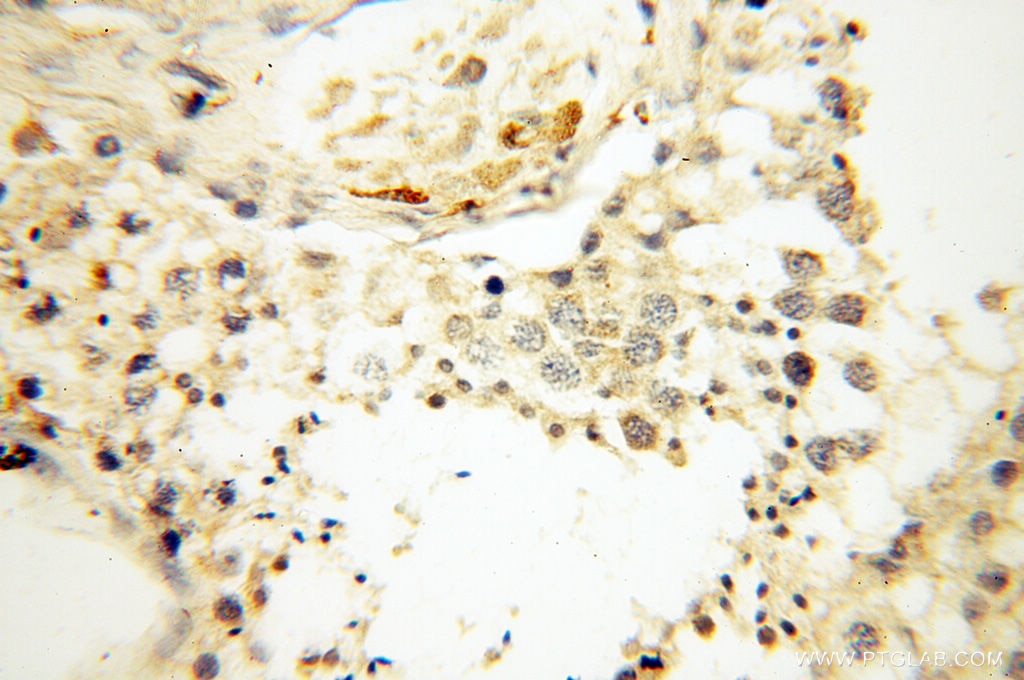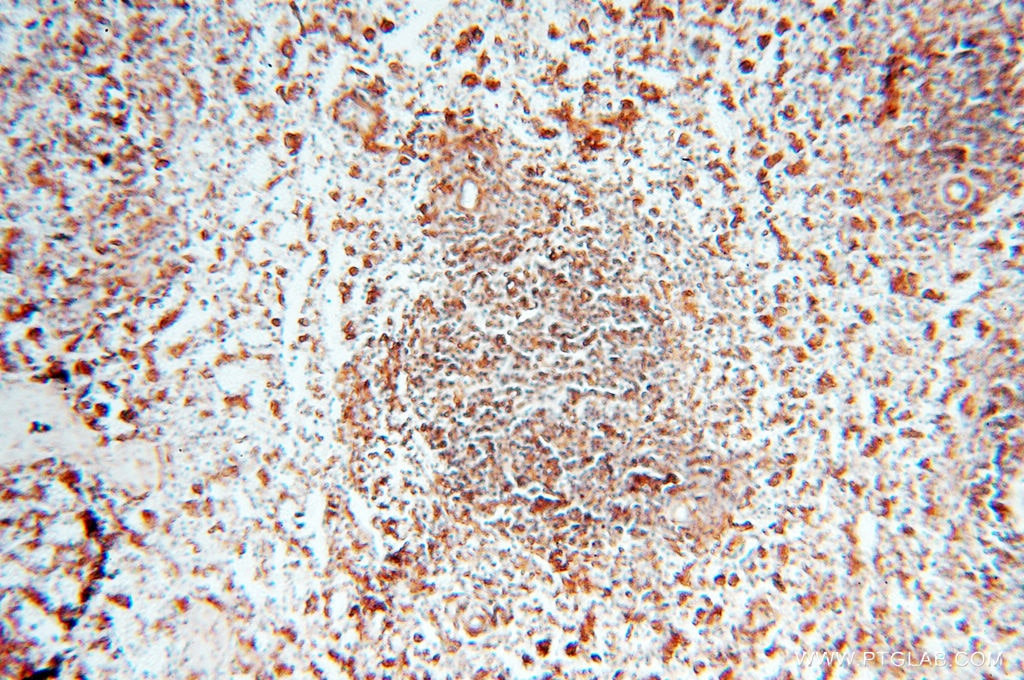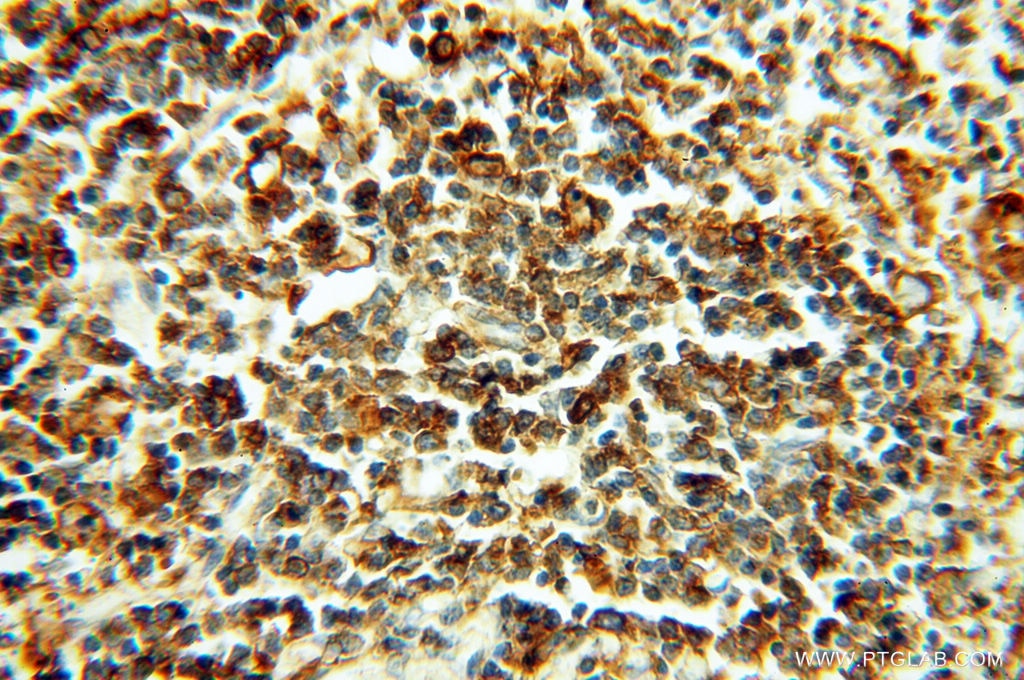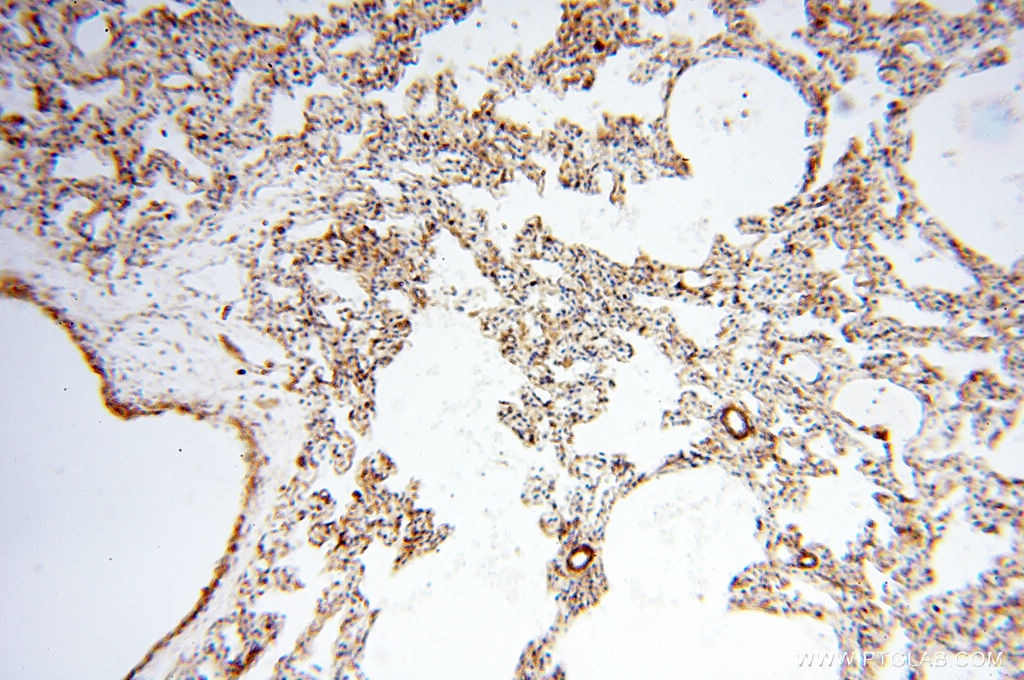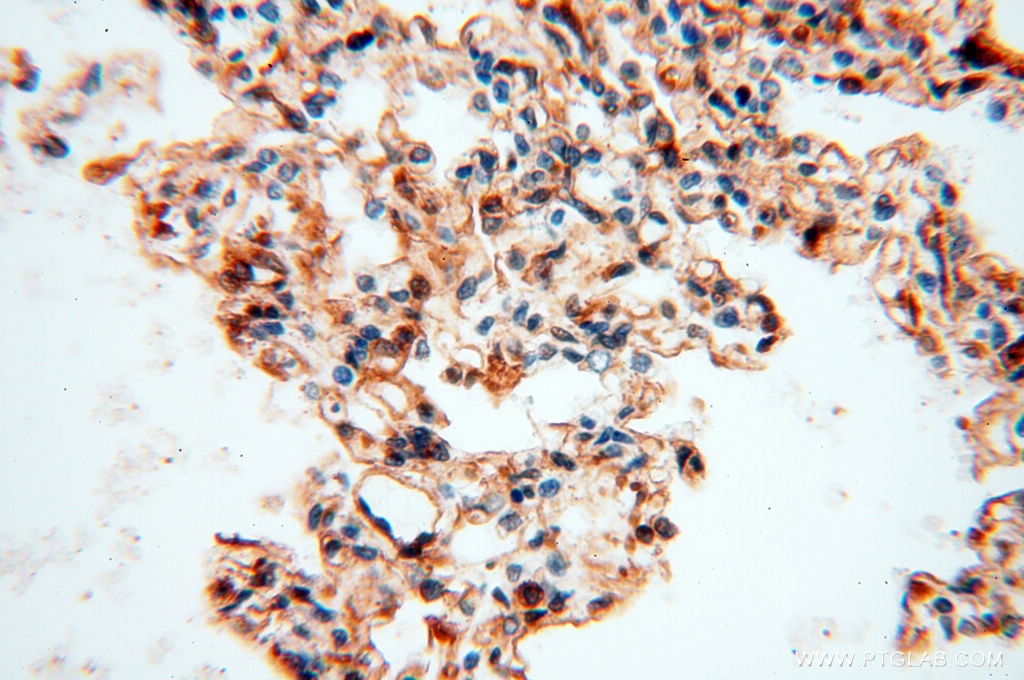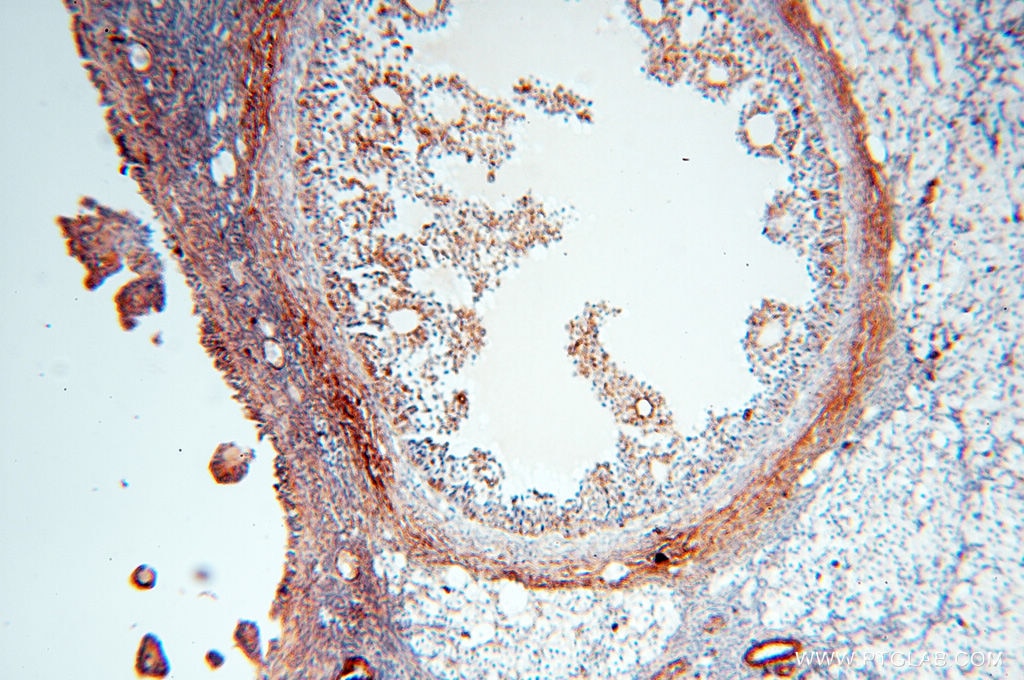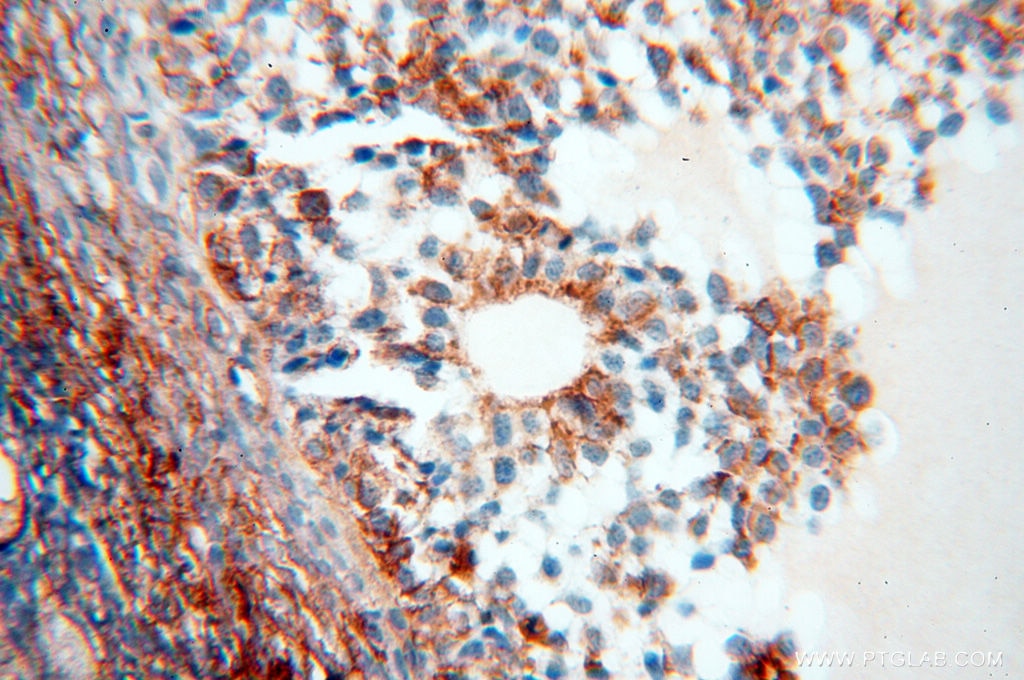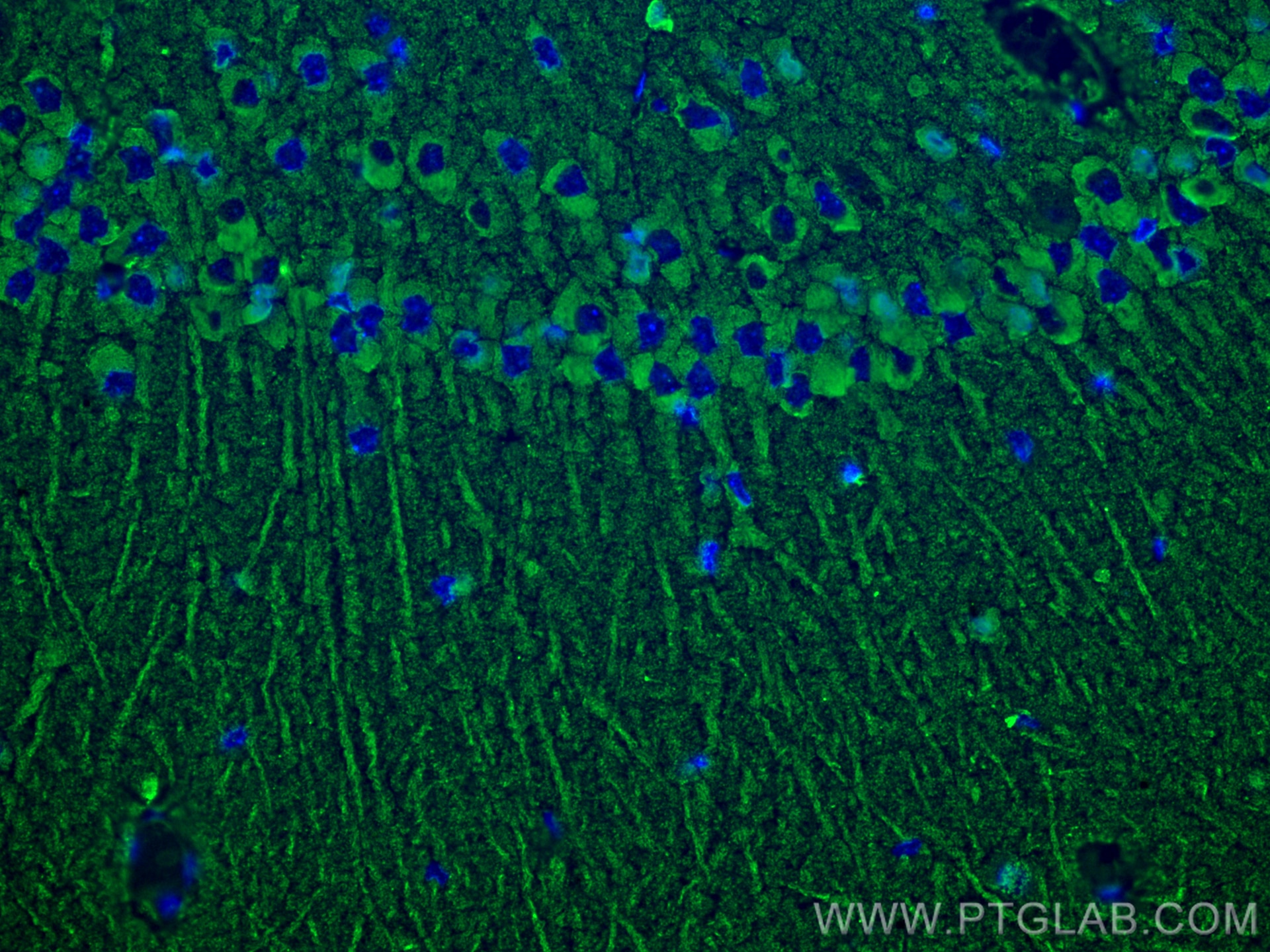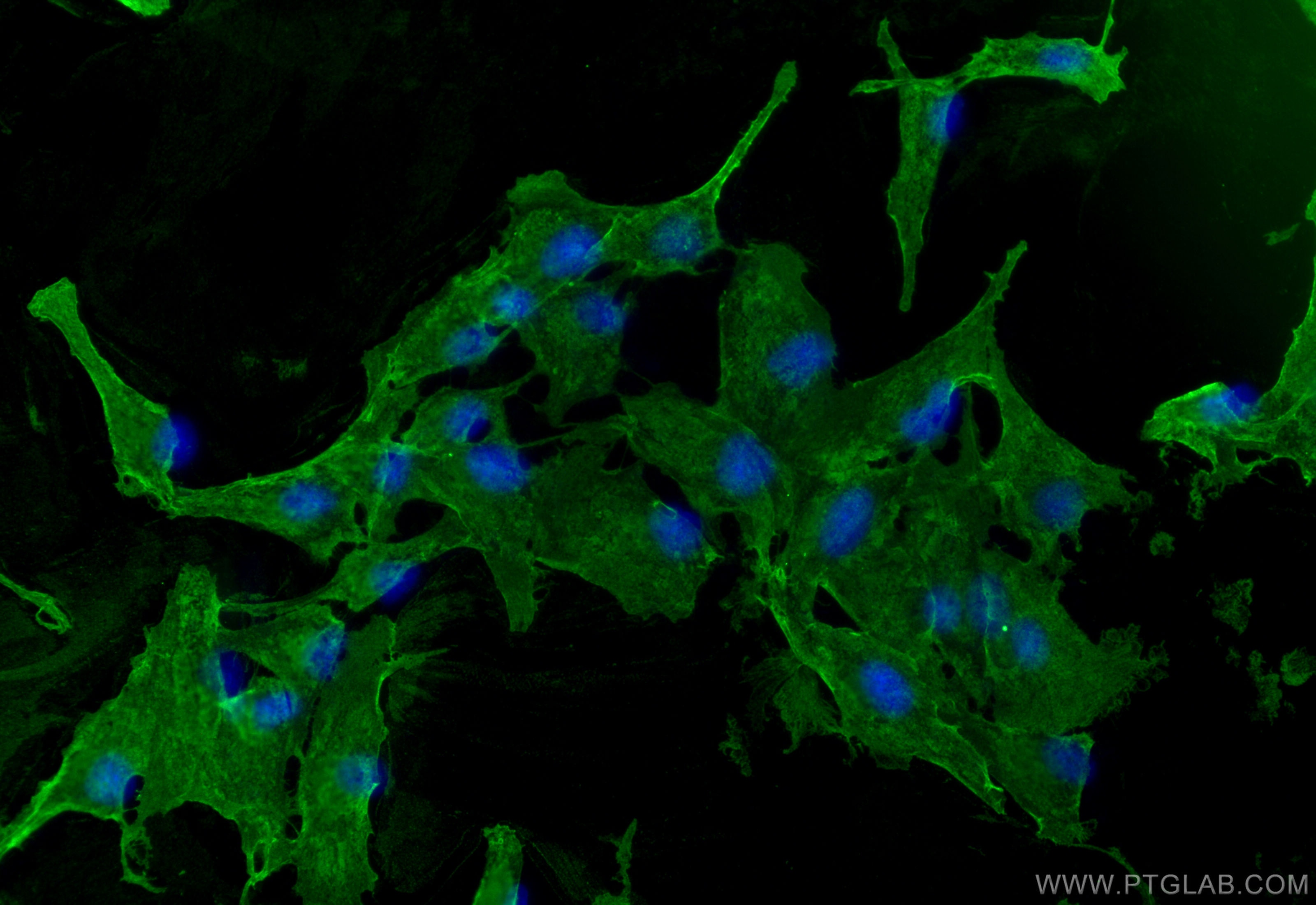WB Figures
WB analysis of multi-cells/tissue using 60008-1-Ig (same clone as 60008-1-PBS)
Western blot analysis of Beta-actin in various tissues and cell lines using Proteintech antibody 60008-1-Ig at a dilution of 1:5000. Extra bands were detected in some species with unknown reason. This data was developed using the same antibody clone with 60008-1-PBS in a different storage buffer formulation.
WB analysis of HeLa cells using 60008-1-Ig (same clone as 60008-1-PBS)
Western blot of Hela cell with anti-Actin-Beta (60008-1-Ig) at various dilutions. This data was developed using the same antibody clone with 60008-1-PBS in a different storage buffer formulation.
WB analysis of arabidopsis whole plant using 60008-1-Ig (same clone as 60008-1-PBS)
arabidopsis whole plant tissue were subjected to SDS PAGE followed by western blot with 60008-1-Ig (beta actin Antibody) at dilution of 1:2000 incubated at room temperature for 1.5 hours. This data was developed using the same antibody clone with 60008-1-PBS in a different storage buffer formulation.
WB analysis of HeLa using 60008-1-Ig (same clone as 60008-1-PBS)
HeLa cells were subjected to SDS PAGE followed by western blot with 60008-1-Ig (ACTB antibody) at dilution of 1:8000 incubated at room temperature for 1.5 hours. This data was developed using the same antibody clone with 60008-1-PBS in a different storage buffer formulation.
WB analysis of MCF-7 using 60008-1-Ig (same clone as 60008-1-PBS)
MCF7 cells were subjected to SDS PAGE followed by western blot with 60008-1-Ig (ACTB antibody) at dilution of 1:2000 incubated at room temperature for 1.5 hours. This data was developed using the same antibody clone with 60008-1-PBS in a different storage buffer formulation.
WB analysis of HEK-293 using 60008-1-Ig (same clone as 60008-1-PBS)
HEK-293 cells were subjected to SDS PAGE followed by western blot with 60008-1-Ig (ACTB antibody) at dilution of 1:2000 incubated at room temperature for 1.5 hours. This data was developed using the same antibody clone with 60008-1-PBS in a different storage buffer formulation.
WB analysis of A549 using 60008-1-Ig (same clone as 60008-1-PBS)
A549 cells were subjected to SDS PAGE followed by western blot with 60008-1-Ig (ACTB antibody) at dilution of 1:2000 incubated at room temperature for 1.5 hours. This data was developed using the same antibody clone with 60008-1-PBS in a different storage buffer formulation.
WB analysis of rice whole plant using 60008-1-Ig (same clone as 60008-1-PBS)
rice whole plant tissue were subjected to SDS PAGE followed by western blot with 60008-1-Ig (beta Actin antibody) at dilution of 1:10000 incubated at room temperature for 1.5 hours. This data was developed using the same antibody clone with 60008-1-PBS in a different storage buffer formulation.
IHC Figures
IHC staining of mouse heart using 60008-1-Ig (same clone as 60008-1-PBS)
Immunohistochemical analysis of paraffin-embedded mouse heart tissue slide using 60008-1-Ig (Beta Actin antibody) at dilution of 1:200 (under 10x lens). Heat mediated antigen retrieval with Tris-EDTA buffer (pH 9.0). This data was developed using the same antibody clone with 60008-1-PBS in a different storage buffer formulation.
IHC staining of human kidney using 60008-1-Ig (same clone as 60008-1-PBS)
Immunohistochemical analysis of paraffin-embedded human kidney tissue slide using 60008-1-Ig (beta Actin antibody) at dilution of 1:500 (under 10x lens. Heat mediated antigen retrieval with Tris-EDTA buffer (pH 9.0). This data was developed using the same antibody clone with 60008-1-PBS in a different storage buffer formulation.
IHC staining of human kidney using 60008-1-Ig (same clone as 60008-1-PBS)
Immunohistochemical analysis of paraffin-embedded human kidney tissue slide using 60008-1-Ig (beta Actin antibody) at dilution of 1:500 (under 40x lens. Heat mediated antigen retrieval with Tris-EDTA buffer (pH 9.0). This data was developed using the same antibody clone with 60008-1-PBS in a different storage buffer formulation.
IHC staining of human placenta using 60008-1-Ig (same clone as 60008-1-PBS)
Immunohistochemical analysis of paraffin-embedded human placenta using 60008-1-Ig(ACTB antibody) at dilution of 1:100 (under 10x lens). This data was developed using the same antibody clone with 60008-1-PBS in a different storage buffer formulation.
IHC staining of human placenta using 60008-1-Ig (same clone as 60008-1-PBS)
Immunohistochemical analysis of paraffin-embedded human placenta using 60008-1-Ig(ACTB antibody) at dilution of 1:100 (under 40x lens). This data was developed using the same antibody clone with 60008-1-PBS in a different storage buffer formulation.
IHC staining of human brain using 60008-1-Ig (same clone as 60008-1-PBS)
Immunohistochemical analysis of paraffin-embedded human brain using 60008-1-Ig(ACTB antibody) at dilution of 1:100 (under 40x lens). This data was developed using the same antibody clone with 60008-1-PBS in a different storage buffer formulation.
IHC staining of human brain using 60008-1-Ig (same clone as 60008-1-PBS)
Immunohistochemical analysis of paraffin-embedded human brain using 60008-1-Ig(ACTB antibody) at dilution of 1:100 (under 10x lens). This data was developed using the same antibody clone with 60008-1-PBS in a different storage buffer formulation.
IHC staining of human testis using 60008-1-Ig (same clone as 60008-1-PBS)
Immunohistochemical analysis of paraffin-embedded human testis using 60008-1-Ig(ACTB antibody) at dilution of 1:100 (under 10x lens). This data was developed using the same antibody clone with 60008-1-PBS in a different storage buffer formulation.
IHC staining of human testis using 60008-1-Ig (same clone as 60008-1-PBS)
Immunohistochemical analysis of paraffin-embedded human testis using 60008-1-Ig(ACTB antibody) at dilution of 1:100 (under 40x lens). This data was developed using the same antibody clone with 60008-1-PBS in a different storage buffer formulation.
IHC staining of human spleen using 60008-1-Ig (same clone as 60008-1-PBS)
Immunohistochemical analysis of paraffin-embedded human spleen using 60008-1-Ig(ACTB antibody) at dilution of 1:100 (under 10x lens). This data was developed using the same antibody clone with 60008-1-PBS in a different storage buffer formulation.
IHC staining of human spleen using 60008-1-Ig (same clone as 60008-1-PBS)
Immunohistochemical analysis of paraffin-embedded human spleen using 60008-1-Ig(ACTB antibody) at dilution of 1:100 (under 40x lens). This data was developed using the same antibody clone with 60008-1-PBS in a different storage buffer formulation.
IHC staining of human lung using 60008-1-Ig (same clone as 60008-1-PBS)
Immunohistochemical analysis of paraffin-embedded human lung using 60008-1-Ig(ACTB antibody) at dilution of 1:100 (under 10x lens). This data was developed using the same antibody clone with 60008-1-PBS in a different storage buffer formulation.
IHC staining of human lung using 60008-1-Ig (same clone as 60008-1-PBS)
Immunohistochemical analysis of paraffin-embedded human lung using 60008-1-Ig(ACTB antibody) at dilution of 1:100 (under 40x lens). This data was developed using the same antibody clone with 60008-1-PBS in a different storage buffer formulation.
IHC staining of human ovary using 60008-1-Ig (same clone as 60008-1-PBS)
Immunohistochemical analysis of paraffin-embedded human ovary using 60008-1-Ig(ACTB antibody) at dilution of 1:100 (under 10x lens). This data was developed using the same antibody clone with 60008-1-PBS in a different storage buffer formulation.
IHC staining of human ovary using 60008-1-Ig (same clone as 60008-1-PBS)
Immunohistochemical analysis of paraffin-embedded human ovary using 60008-1-Ig(ACTB antibody) at dilution of 1:100 (under 40x lens). This data was developed using the same antibody clone with 60008-1-PBS in a different storage buffer formulation.

